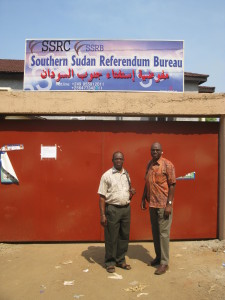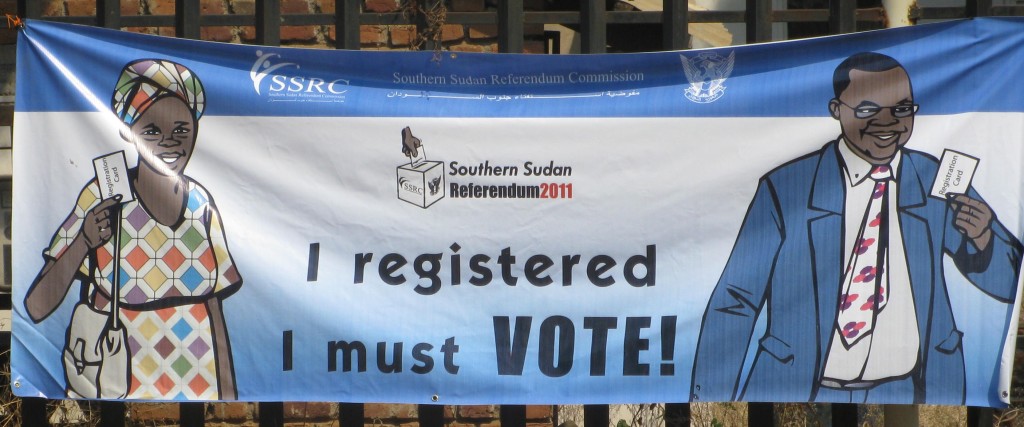The virtue of patience: freedom and lost luggage
Good people have many virtues, including patience. By that account, the people of Southern Sudan must be good people. They have exercised remarkable patience over the last few decades, waging a struggle for independence which included 20 years of war with their military rulers of Khartoum. They have demonstrated their patience again by peacefully waiting 2 months between registering to vote and exercising their right. I have much to learn from the people of Southern Sudan.
The war started in Southern Sudan in 1983, further north than Juba, where I am at the moment, in areas like Upper Nile and Bahr el Ghazal. By 1985, the first big group of people arrived in Juba, recounts Augustino Buya, Oxfam’s Juba Director . The SPLA (Sudan Peoples Liberation Army) had attacked what was then a garrison town for the Sudanese military and 40,000 people came to the town and set up camp.
Within a few years there were almost 250,000 people in Juba, who had sought refuge from fighting in other parts of the south. At the outset of the war, Juba’s population was around 80,000. Today, with independence in the air, estimates put the population closer to 500,000 and growing rapidly.
Augustino recounts the horrible conditions in Juba during the war. He writes, “The town residents lived in grass tukuls (traditional huts). The displaced people and new arrivals lived in tents. Life was very harsh. There was little food – the displaced people had nothing and were totally dependent on food aid flown in by aid agencies.”
Today, things are very different. Traders are rushing to Juba from all over the region. In the markets you see Ethiopians, Lebanese, Ugandans, Somalis, and, of course, Kenyans, who seem to run the majority of businesses in town. By the end of next week, the long wait by the people of Southern Sudan may come to its end, and Sudanese will truly be in charge. If the week-long referendum process ends as predicted, Southern Sudanese will have their country and their independence.
My struggle is far, far less important, but it is nevertheless testing my patience. I left Canada one week ago and still haven’t seen my luggage. The last news had it somewhere in Brussels a few days ago. I transited through there on Sunday morning; today is Friday. (As an aside, I think my socks are demanding their independence, too.)
I did manage to buy a few things in the market yesterday. I found a second-hand pair of pants that seem to fit, and a shirt made by someone called Kevin Cole. The coordinators of our ecumenical delegation, Kofi Kudu and Abraham Chikasa (pictured), think I look quite smart. They were both very helpful in locating my things. Kofi bargained hard on my behalf and Abraham gave his approval.
My trials are trivial, I recognize. I am fortunate not to have lived through 20-odd years of war like the people of Juba and Southern Sudan. Everyone one of us here hopes the peace holds. The people of this region are tired of war, and tired of waiting for their rights: you can see it in their faces and hear it in their voices. But they are also filled with quiet expectation for what will come next week. As am I.
Wait… is that the phone? “Kenya Airways is on the phone, Mr Lewis,” says the voice on the line. “They think that they have found your luggage.”
——————————————-
John Lewis, KAIROS International Human Rights Coordinator, accredited by the South Sudan Referendum Commission, is currently in South Sudan on behalf of the Canadian churches monitoring the self-determination referendum called for in the 2005 Comprehensive Peace Agreement ending 20 years of North-South civil war.









